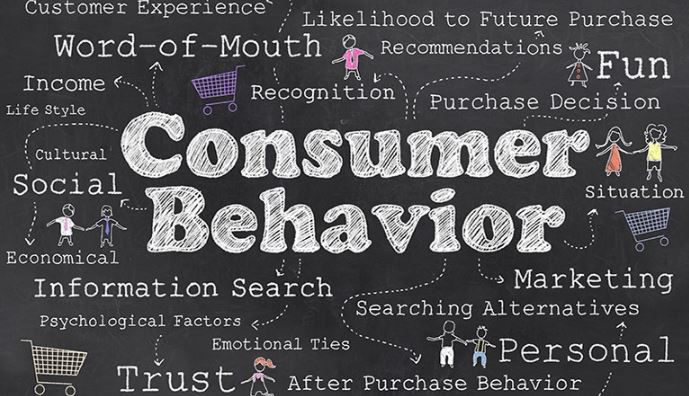The Impact of Advertising on Consumer Behaviour in the UK: A Case Study of Samsung (2014)
Impact of Advertising on Consumer Behaviour Dissertation – The sales accrued from Samsung Mobile amounts to 70% of the company’s total revenue. By virtue of this fact, the company has grown to become the world’s largest information technology company in terms of revenues since 2009. We live in an era of aggressive competition; with manufacturers leaving no stone unturned in the strategies they employ to retain the highest demand for their goods and services. No matter the tactics they employ to achieve product acceptability, the final power lies in the hand of the consumers who chooses what good or service appeal to them the most.
Therefore, it is imperative to understand exactly what a consumer likes. Consumer needs, tastes and preferences are constantly changing because their choices are affected by certain factors such as location, demographics and lifestyles. These variations can be exploited as great business opportunities to the manufacturer’s advantage. It could also become a threat for marketers who fail to detect this change and adapt to its resulting effect.
Consumers go through several cognitive and behavioural processes in the course of their acquiring, consuming, and disposing of the products and services created by organizations. Understanding what makes a consumer decide on one brand instead of another and what factors influence their decision-making is crucial for marketers. This realization will provide for the existing needs of their consumers as well as prepare for their future needs. This awareness will also aid in taking accurate business decisions related to product development, packaging, pricing, distribution, promotions, communication, etc.
For any industry to achieve financial success, it must focus its ability on creating products that will satisfy the huge demand of a large group of consumers. No matter how high the quality of a product is, or how affordable its cost may be, if the final consumer is not aware of a product’s existence, that product is regarded as a failure and a financial loss to its manufacturer. Without letting consumers know about the products, how are products going to get to the consumer?
Despite achieving these tremendous accomplishments, the company still faces very stiff competition from leading global electronic giants, especially in the United Kingdom where brand loyalty is widespread. UK consumers largely favour mobile devices that provide such functional services which range from state-of-the-art chat messaging, ease of interacting on the various social networks with friends, comfortable navigation on the internet, high picture quality from the device’s camera for photo sharing, to prolonged battery life.
It is therefore left for Samsung to device ways to adopt sound marketing strategies such as effective product pricing, high product quality, constant innovations and product awareness to keep them at the top of their competition. These strategies enumerated can only have an effect on the purchasing decisions of UK consumers if the company is able to comprehend what influences the tastes and choices of this set of customers so as to instill in them brand loyalty for Samsung Mobile. The following research questions shall serve as a guide to highlight the impact of advertising on consumer behaviour in the UK based on a case study of Samsung Mobile:
- How can advertising be used to control the purchasing choice of the consumer
- How can advertising effectively target and help to maintain customer loyalty
- How do customers perceive Samsung Mobile in relation to that of its competitor
- How can customer satisfaction be achieved
- How can marketers create a competitive advantage
- 12,000 words – 44 pages in length
- Excellent use of literature
- Good statistical analysis of findings
- Well written throughout
- Includes questionnaire
- Ideal for marketing students
1 – Introduction
Background of Research
Statement of Problem
Rationale of Research
Research Questions
Research Aim and Objectives
Research Methodology
Structure of Research
2 – Literature Review
Subject Matter of Research
The Power of Consumers Decision Making Process
Determinants which Influence Consumer Behavior
How Advertising Can Control the Purchasing Choice of the Consumer
How Advertising Can Effectively Target and Help Maintain Customer Loyalty
How Samsung Can Target UK Consumers to Boost Sales
How UK Consumers Perceive Samsung Mobile in Relation to that of its Competitors
How Samsung Can Create a Competitive Marketing Advantage
Conclusion
3 – Methodology
Research Philosophies
Justification for the Adopted Philosophy
Research Design and Justification for Choice
Quantitative Data Collection
Qualitative Data Collection
Data Collection Methods
Data Collection Instruments
Sampling
Reliability, Validity and Ethics
Limitations
4 – Data Analysis and Findings
Sample Characteristics
Demographics by Age
Demographics by Gender
Demographics by Employment Status
Hypothesis Formulation
Regression Analysis
Hypothesis 1: Advertising can be used to control purchasing choice of the consumers
Interpretation of the Regression Model Outputs
Hypothesis 2: Advertisements contribute to Samsung’s customer’s satisfaction levels
Hypothesis 3: Marketers Can Create Competitive Advantage
5 – Conclusions and Recommendations
Review of the Research Objectives
Findings and Answers to the Research Questions
Recommendations
References
Appendix
Questionnaire

